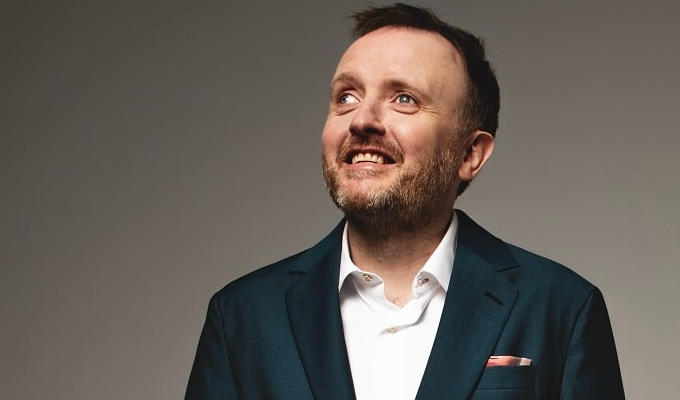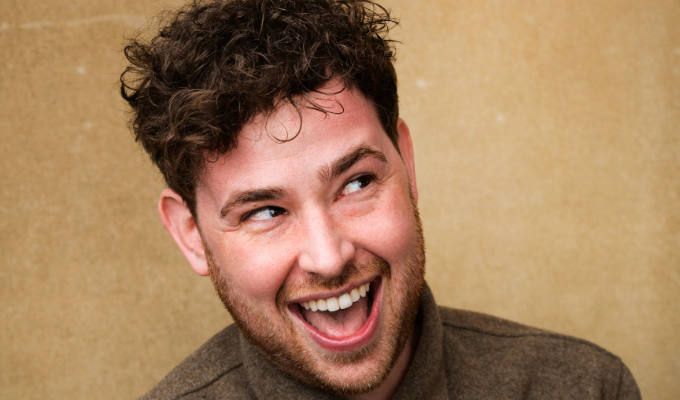What made Lenny Bruce so special
Lenny Bruce is widely acknowledged as the man who changed the face of stand-up; the pioneer who made comedy an artform in which comics could tackle social and personal issues, rather than adhering to the ‘take my wife…’ style gags of his predecessors.
But what drove him to first become such an outspoken force, taking a principled stand for freedom of speech in comedy despite intimidation from an oppressive establishment? Was it a strong moral sense of right or wrong? Or the growing non-conformist spirit among America’s youth?
Maybe. But the most important factor, according to his own daughter, was a lot more prosaic: the loss of the love of his life.
In an exclusive interview with Radio 2 to be broadcast next week, Kitty Bruce says his divorce from stripper ‘Hot’ Honey Harlowe, who he met and married in 1951, was the catalyst for his extraordinary change from jobbing club comic to revolutionary social commentator.
She told the BBC: ‘They had a very passionate relationship. There’s a very fine line between love and hate, and they walked that line. It was explosive, vengeful, giving loving, everything in reverse and forwards, chaotic...
‘A lot of it, you have to remember had to do with drugs, because that comes along with it. That took up pretty much their whole life and what they were doing’
But when they divorced in 1957, Bruce, his daughter says ‘became more angry’. And crucially, it coincided with a wind of change sweeping through parts of American society.
‘He was really, really bugged because his ego was hurt, first of all, and on top of that he was really in love with her,’ says 50-year-old Kitty. ‘She was doing a lot of things to hurt him and it was intense.’
‘Any time you take someone away from a primary relationship, they’re gonna go off and do different things. So [once] all of his time and effort and energy wasn’t wrapped up in Honey – and, believe me, she was a full-time job for him – he started to expand, he started to grow, he started to try out new ideas.
‘He was hanging out with different people, his intellect was starting to get sharpened. His outlook was changing, times were changing, people were changing. The music was different. And he was growing.’
Stand-up Stewart Lee, an admirer of Bruce’s work, believes another factor in his change of style was because he had become disillusioned with comedy, so stopped trying to entertain and set his own agenda instead.
‘There was a period where he gave up in the mid-Fifties, when he was just hosting strip clubs and playing to people who didn’t want to see him,’ he said. ‘He was able to develop the material he really wanted to because it didn’t matter. It was no risk to Lenny Bruce to bring in controversial social commentary or coarse themes and language – because he wasn’t going anywhere anyway.
‘This is the thing that’s happened to a lot of the best comics. That you find your voice at the very point you’ve given up. ’
But while it is his controversial content for which Bruce is most remembered, Lee says his delivery was unrivalled, too.
‘The style and delivery is absolutely fascinating and unique,’ he said. ‘It’s got a musical rhythm to it.
‘It uses impenetrable Yiddish and hipster slang of the Fifties and Sixties in such a way as a third of it is incomprehensible, but it doesn’t matter, because it’s rhythmically pleasing. The way he was able to get laughs just from rhythms and sounds is overlooked in the light of the extent to which people write about the content.’
The content, of course, was what landed him in trouble. Bruce was persecuted in almost every city he played, with police arresting him for obscenity and clubs refusing to book him for fear of losing their licence.
Included in the new Radio 2 documentary is many previously unheard recordings from Bruce’s archive, including one in which police phone to warn him that his show would be watched by officers to ensure it breached no boundaries.
It was a relentless struggle for Bruce. Unable to work, he fell into debt and depression, becoming increasingly dependent on drugs. Eventually, he was convicted and sentenced to four months’ jail for obscenity over a 1946 show at the Café A GoGo in New York. In 2003, the state granted Bruce a posthumous pardon, a first in American legal history.
But at the time, Bruce found it hard to accept that a country that had enshrined the freedom of speech in the first amendment to its constitution, would prosecute him just for speaking
Kitty told the BBC: ‘He had every right to be paranoid. He wasn’t obscene, it was the content of what he was saying that infuriated people because it was true. And nobody had the balls to say the things that he said. A lot of people thought it, but nobody would just say it.’
‘He was proud of being an American. He believed in the constitution, he believed in the 1st and 14th amendment [guaranteeing the due process of law]. He believed in freedom of speech. When he was looking at four months in prison for speaking – that didn’t sit well.’
On August 3, 1966, while awaiting the results of his legal appeal, Bruce was found dead from an overdose in his Hollywood Hills home at the age of 40. On his typewriter, his last words were ‘conspiracy to interfere with the 4th amendment’.
- The hour-long documentary Lenny Bruce Is Dead, narrated by Simon Amstell, will air on BBC Radio 2 next Tuesday, July 25, at 8.30pm.
Published: 26 Jul 2006






